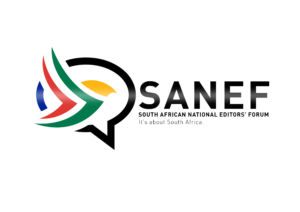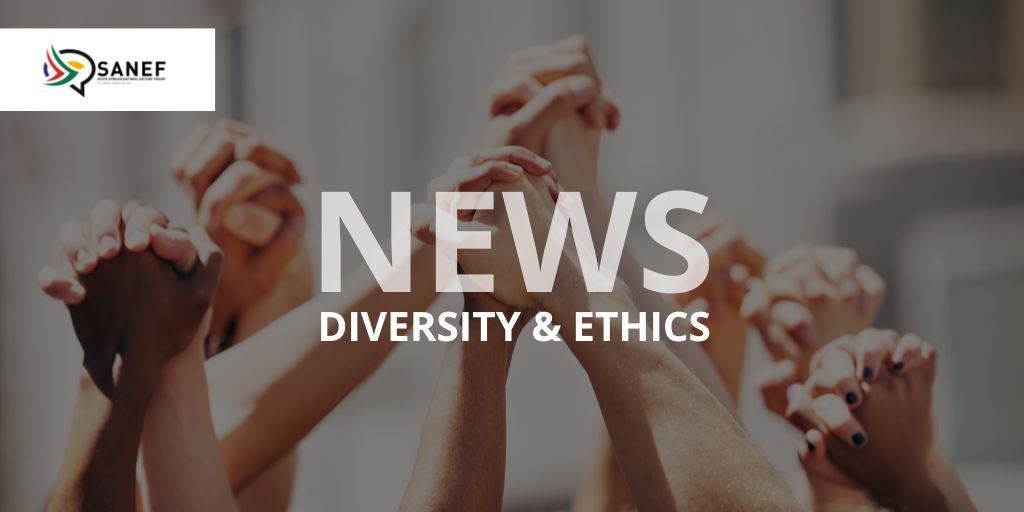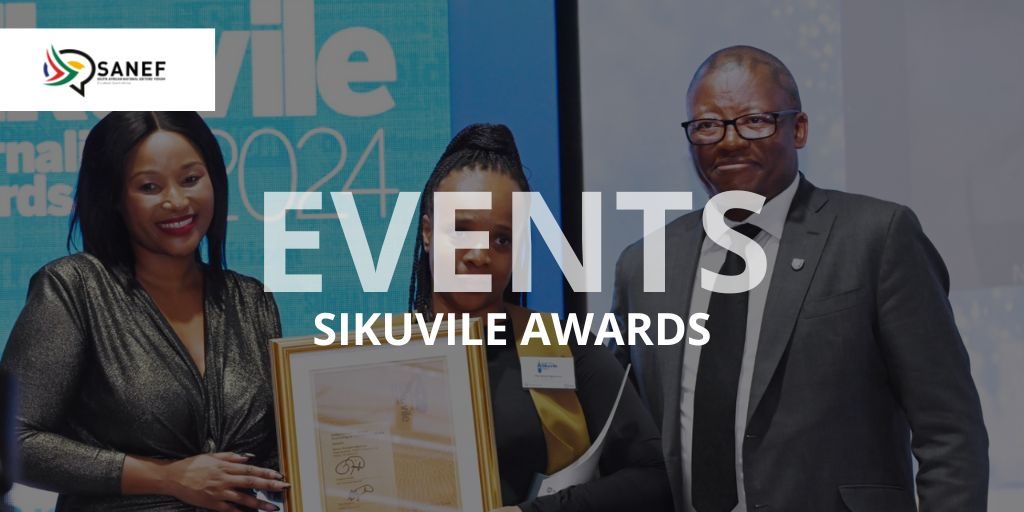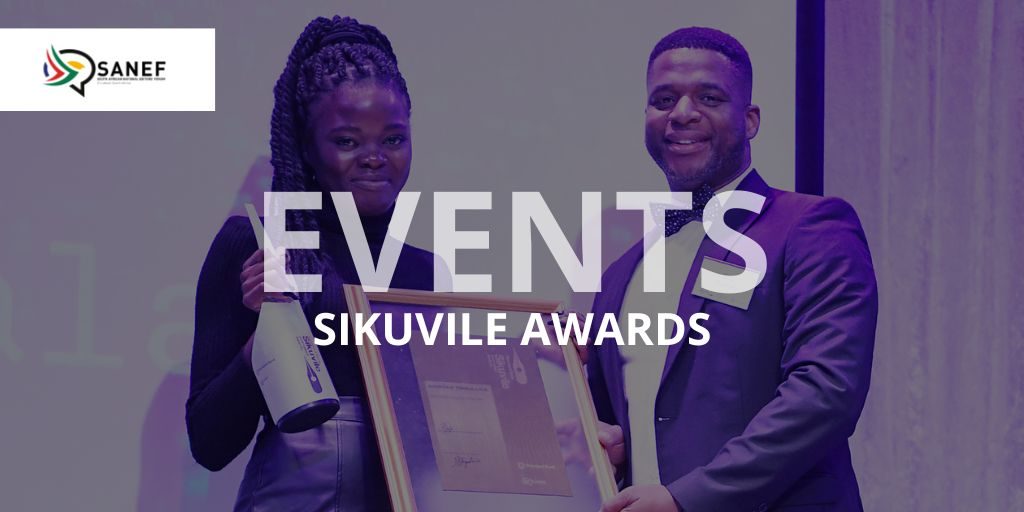SANEF Council’s Key Resolutions to Protect Media Freedom and Promote Ethical Journalism in Our Industry
 The South African National Editors’ Forum (SANEF) at its first Council meeting for 2021 has called on the State Capture Inquiry led by Deputy Chief Justice Raymond Zondo to divulge the names of journalists who were paid by the country’s intelligence agencies where there is evidence to back this up.
The South African National Editors’ Forum (SANEF) at its first Council meeting for 2021 has called on the State Capture Inquiry led by Deputy Chief Justice Raymond Zondo to divulge the names of journalists who were paid by the country’s intelligence agencies where there is evidence to back this up.
SANEF has taken firm decisions to promote freedom of expression, ethical and transparent journalism.
A major point of discussion was on the recent allegations of journalists being used as spies to further the agenda of the State Security Agency (SSA). Members again noted the admission of African News Agency (ANA) CEO Vasantha Angamuthu that they accepted money from the State Security Agency (SSA) to “provide multi-media training for SSA analysts and interns across Africa” and to carry positive stories about South Africa and the government.
Angamuthu’s admission comes after the testimony of Dr Sydney Mufamadi before the State Capture Commission of Inquiry. Mufamadi told the commission that about R20 million was paid by the intelligence agency to ANA to influence the national news narrative and to counter the bad publicity around former president Jacob Zuma’s government.
We call on the relevant authorities to investigate all claims before the Zondo Commission and make public their findings and the names of other journalists and media houses involved.
Further, in promoting transparency and ethical journalism expressed concern over the decision by Independent Media to launch its own Press Council. Members felt that such a decision further erodes the trust that audiences/readers place in the media industry.
This amounts to Independent Media being a player and referee in complaints against the group’s titles.
Freedom of expression and the public’s right to information that is free, and fair is protected in our Constitution. The self-regulation of the South African media works when complaints by members of the public are adjudicated by an independent person/s outside of one’s own media organisation so as not to undermine the public’s right to recourse.
This is important for the credibility of the media in South Africa.
SANEF is dedicated to finding an amicable solution to this matter with the parties concerned and will seek ways to impress upon Independent Media to reconsider its decision and re-join the media fraternity’s self-regulatory structure for the greater good of the media and its credibility in the eyes of the public in South Africa.
On the international front, the SANEF Council stands in solidarity with journalists globally who face ongoing harassment and persecution locally and abroad. In neighbouring Zimbabwe, we call again for charges to be dropped against investigative journalist Hopewell Chin’ono, who has been jailed three times in 6 months and who continues to face harassment in a bid to silence him.
In Somalia, where there is an impasse over elections which were due to be held by February 8, there have been at least eight incidents where journalists were harassed, assaulted, or briefly detained – for doing their jobs – in Mogadishu and other regions over the last three weeks.
SANEF supports the call by the Committee to Protect Journalists and Somali Journalists Syndicate (SJS) that these attacks must stop so that the press can cover this electoral process safely. SJS secretary-general Abdalle Ahmed Mumin said they were concerned that authorities in various states “have shown no respect for the rights of the journalists and that they continue to target and endanger the lives of reporters.
SANEF equally condemns the attacks against journalists in Uganda during the recent elections in that country. We submit that the besieged journalists in these countries are striving to put the public interest – and the truth – above their self-interest and or assumptions.
Also, since the Feb 1 military coup in Myanmar, SANEF is concerned that journalists and media organisations have experienced arrests, harassment, censorship, and intermittent internet shutdowns. We call for the release of female Journalist Shwe Yee Win, who had reported on opposition to the coup in the western town of Pathein, who was taken away by police and soldiers on Thursday and has not been heard from since then, according to her TimeAyeyar news website and her mother. All journalists in that country now face chilling and draconian new electronic communications legislation. Though far from perfect, Myanmar’s position on the RSF press freedom index improved by 20 points over the past decade. That progress is now swiftly being reversed. Despite this, SANEF stands with Myanmar’s journalists who have bravely and ingeniously employed every tactic to get the news of the civil disobedience movement out and salutes their courage.
Raids this week by India’s federal economic intelligence agency, the Enforcement Directorate on several media houses which have been outspokenly critical of Prime Minister Narendra Modi is disturbing. It is seen by many critics as a fresh assault on the free press by an authoritarian government. Editor-in-chief Prabir Purkayastha of Newsclick was detained and interrogated for more than 30 hours. The World Press Freedom Index 2020 has ranked India at 142 among 180 countries. Its ranking has been declining steadily since then.
Media Ethics and Credibility Conference
The meeting also confirmed arrangements for SANEF’s upcoming Media Ethics Conference, a platform that comes hot on the heels of the independent report produced by Judge Kathleen Satchwell on media ethics and credibility. Other matters covered included the strengthening of journalism reporting skills through the roll-out of court reporting, and elections and safety training.
In celebrating World Radio Day, Sanef notes the importance of the medium and its massive reach across SA and Africa as it continues to empower and educate nations in these bleak times under the Covid pandemic.
Lastly, SANEF welcomes the statement from SABC women journalists and editors on the tragic systemic culture of Gender Based Violence (GBV) and Femicide that seems to have found fertile ground especially during the COVID-19 crisis. We are equally devastated by the brutality visited upon Lesedi FM’s Dimakatso Ratselane in Bloemfontein. SANEF sends its best wishes to her and family at this difficult period.
We are extremely concerned that women journalists are among the most vulnerable when reporting in the field. Women journalists are affected by gender-specific safety risks such as sexual harassment, sexual violence, and threats of violence. Recent studies by Reporters Without Borders have shown that women journalists are particularly affected by online harassment. Another independent study by International Media Support (IMS) of 2019, on the “The safety of women journalists: Breaking the cycle of silence and violence” shows that women journalists in across Asia, Africa, the Middle East and South America share similar challenges in the workplace ranging from gender-based unequal opportunities such as low pay and longer working hours, to severe physical abuse and online harassment.
As a result, these threats tend to silence women journalists’ voices and to deplete freedom of speech by interrupting valuable investigative journalist work. They also distort the media landscape by threatening diversity and perpetuating inequalities both in newsrooms and in societies. We urge the country’s authorities to note that impunity for crimes against journalists, especially gender-based violence, harassment and intimidation, continues to prevail in countries with no armed conflict. They must endeavour to protect female journalists as a priority.
Note to Editors: The South African National Editors’ Forum (SANEF) is a non-profit organisation whose members are editors, senior journalists and journalism trainers from all areas of the South African media. We are committed to championing South Africa’s hard-won freedom of expression and promoting quality, ethics and diversity in the South African media. We promote excellence in journalism through fighting for media freedom, writing policy submissions, research and education and training programmes. SANEF is not a union.
For more information please contact:
- Sbu Ngalwa – SANEF Chairperson (073) 404-1415
- Adriaan Basson – SANEF Deputy Chairperson (082) 562-2113
- Mahlatse Mahlase – Secretary General (083) 399-2852
- Nwabisa Makunga – Treasurer (082) 555-1972
- Mary Papayya – SANEF Media Freedom Chair (082) 379-4957
- Chiara Carter – SANEF Eastern Cape Convenor (082) 659-9162
- Katy Katopodis – SANEF Gauteng Convenor (082) 805-7022
- Judy Sandison – SANEF KZN Convenor (082) 571-3334
- Asanda Ngoasheng – Western Cape Convenor – 082 610 9374
- Kate Skinner – SANEF Executive Director – (082) 926-6404





